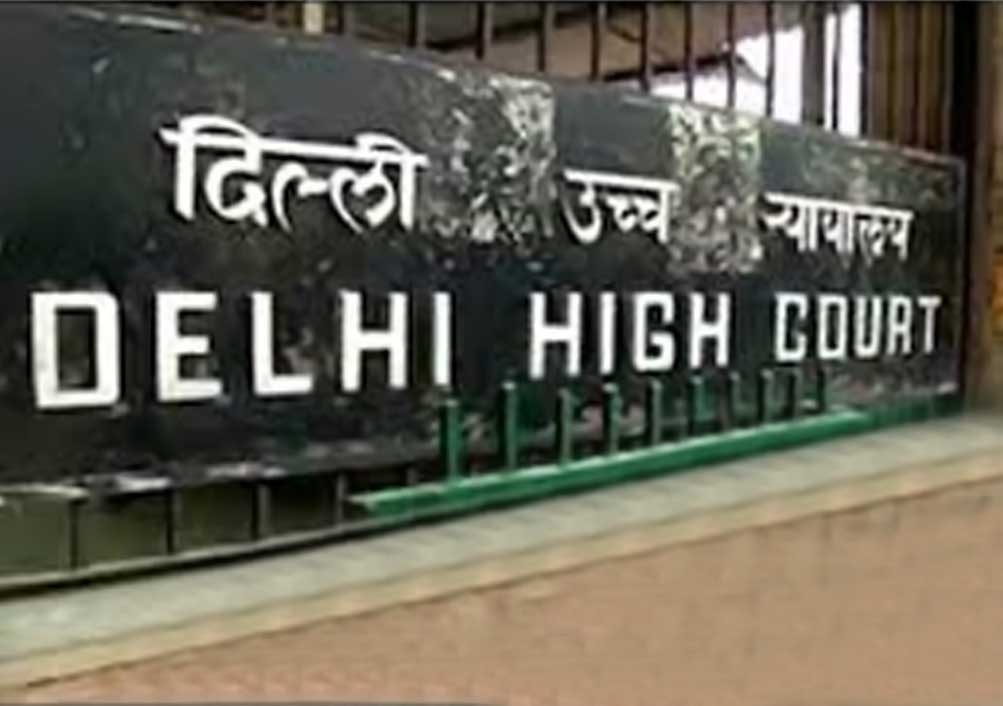In CRL.M.C. 1303/2014 -DEL HC- Power to stay proceedings under Section 309 of Cr.P.C. vests with Trial Court, not Sessions Court in revisional jurisdiction: Delhi High Court
Justice Amit Sharma [05-12-2023]

Read Order: Bimalendu Ghosh Dastidar V. State & Ors
Chahat Varma
New Delhi, December 7, 2023: The Delhi High Court has set aside an order passed by the Additional Sessions Judge (ASJ) staying the proceedings in a criminal case pending the outcome of probate proceedings. The Court held that the ASJ lacked jurisdiction to pass such an order.
The petitioner had filed the present petition under Section 482 of the Code of Criminal Procedure, 1973 (Cr.P.C.), challenging the judgment, passed by the ASJ. This judgment had stayed the proceedings pending in the Court of the Chief Metropolitan Magistrate, arising out of FIR registered under Sections 420/467/468/471/120B of the Indian Penal Code, 1860 (IPC). The stay was decreed until the conclusion of proceedings in probate case, pending before the Court of the Additional District Judge.
The counsel for the petitioner had argued that the ASJ had committed a grave error and illegality by exceeding his jurisdiction and superseding the order passed by a Single Judge of the Court. The Single Judge had previously recorded that the appropriate course for the petitioner would be to expedite the probate proceedings, rather than to stall or postpone the criminal proceedings.
The single-judge bench, presided over by Justice Amit Sharma, noted that the impugned judgment was passed in revision petitions challenging the order of framing of charges by the Metropolitan Magistrate. The ASJ was exercising the powers under Section 399 read with Section 401 of the Cr.P.C. while passing the impugned judgment. It was observed that the ASJ, in exercising such power, was examining the correctness, legality, or propriety of the order. The impugned judgment proceeded to exercise power under Section 309 of the Cr.P.C. without examining the order on charges.
The bench observed that Section 389 of the Cr.P.C. outlines the provision for the suspension of a sentence pending appeal and the release of the appellant on bail. Additionally, Sections 390 and 391 of the Cr.P.C. deal with the arrest of the accused in an appeal from acquittal and grant the appellate court the power to take further evidence, respectively. The bench noted that upon reviewing these provisions, it became evident that the ASJ, while examining the petitions challenging the charge order, lacked jurisdiction to issue an order under Section 309 of the Cr.P.C.
The bench referred to the Single Judge's order dated 17.03.2010, which conclusively settled the matter between the parties concerning the postponement of criminal proceedings pending the outcome of probate proceedings. This order, made after a thorough examination of Section 309 of the Cr.P.C., remained unchallenged and had thus achieved finality.
Further, the bench noted that the ASJ, in the impugned judgment, had made an observation regarding the previous order, which had stayed the pronouncement of judgment in the case upon filing an application under Section 309 of the Cr.P.C. The ASJ noted that a fresh conclusion was necessary after the order to frame charges. However, the bench found this observation untenable, stating that there was no new application under Section 309 filed after the framing of charges that warranted consideration. Additionally, the Court clarified that the power to deal with such matters lies with the Trial Court, not the Sessions Court in revisional jurisdiction. The issue of exercising power under Section 309 was not challenged before the ASJ in the petitions filed by respondents no. 2 to 4.
Thus, in light of the aforementioned analysis, the Court deemed the impugned judgment legally unsustainable and, as a result, decided to set it aside.
Given that the revision petitions were filed specifically to challenge the order framing charges by the Metropolitan Magistrate, and this particular issue was not addressed in the impugned judgment, the Court remanded the matter back to the ASJ for a proper determination of these petitions in accordance with the law.
Sign up for our weekly newsletter to stay up to date on our product, events featured blog, special offer and all of the exciting things that take place here at Legitquest.




Add a Comment